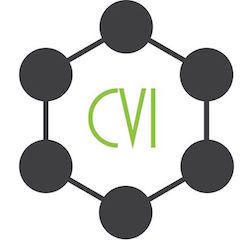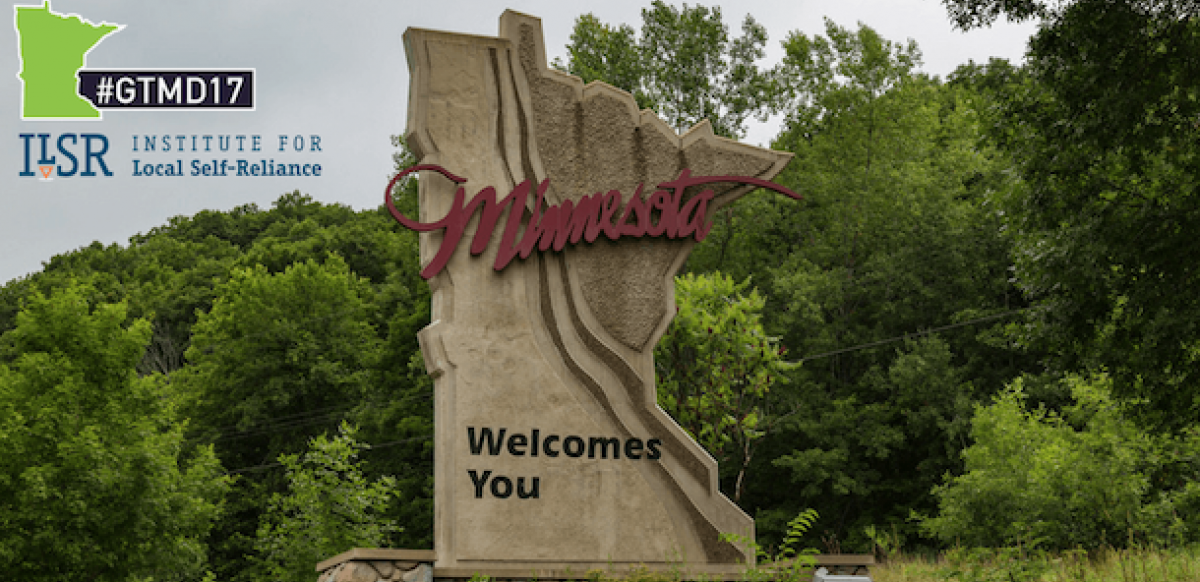
Fast, affordable Internet access for all.

Nestled along the south eastern border of Maine are Baileyville and Calais. As rural communities situated next to Canada in the state's "Downeast" region, neither town is on a list of infrastructure upgrades from incumbents. With an aging population, a need to consider their economic future, and no hope of help from big national ISPs, Baileyville and Calais are joining forces and developing their own publicly owned broadband utility.
Baileyville and Calais
There are about 3,000 residents in Calais (pronounced "Kal-iss") and 1,500 in Baileyville, but according to Julie Jordan, Director of Downeast Economic Development Corporation (DEDC), many of those residents are aging and younger people find little reason to stay or relocate in Washington County. The community recognizes that they need to draw in new industries and jobs that will attract young families to keep the towns from fading off the map.
Most of the residents in the region must rely on slow DSL from Consolidated Communications (formerly FairPoint), while a few have access to cable from Spectrum (formerly Time Warner Cable); expensive and unreliable satellite is also an option and there's some limited fixed wireless coverage in the area. A few larger businesses that require fiber optic connectivity can find a way to have it installed, but Julie tells us that it's incredibly expensive in the area and most can't afford the high rates for fiber.
Economic Development Driven
 Organized in 2015, the nonprofit DEDC came together with the focus on recruiting new businesses to the area and to support existing businesses. As DEDC quickly discovered, unless the region could offer high-speed, reliable Internet infrastructure, attracting new businesses and helping existing businesses expand would be extremely difficult. They also determined that new families would not be interested in Baileyville or Calais without high-quality connectivity. "It was a no-brainer," says Julie, "you have to go fiber."
Organized in 2015, the nonprofit DEDC came together with the focus on recruiting new businesses to the area and to support existing businesses. As DEDC quickly discovered, unless the region could offer high-speed, reliable Internet infrastructure, attracting new businesses and helping existing businesses expand would be extremely difficult. They also determined that new families would not be interested in Baileyville or Calais without high-quality connectivity. "It was a no-brainer," says Julie, "you have to go fiber."
The Broadband Deployment Advisory Council (BDAC), established by the FCC in January 2017, has caused concern among groups interested in protecting local authority. On April 12th, the Coalition for Local Internet Choice (CLIC) voiced those concerns in a precisely worded letter to Ajit Pai’s FCC that spelled out the way the BDAC is running roughshod over local rights.
Leaving Out The Locals
As CLIC states in the beginning of their letter, the lack of local representation on the BDAC indicates that the FCC has little interest in hearing from cities, towns, and other local government. There’s plenty of representation on the Council, however, from corporations and private carriers.
From CLIC’s letter:
The audacity and impropriety of the process is clear from the fact that this entity, comprised primarily of corporate and carrier interests, is empowered by the Commission to develop model codes that could potentially impact every locality and state in the United States without any serious input from the communities it will most affect.
This group of individuals has been tasked with developing model codes that may be adopted at the local level; local input is not only necessary to create policies that are consider the needs of local folks, but that will work. To achieve productivity, BDAC needs to understand the environments in which their proposals may be adopted, otherwise their goal to be increasing broadband deployment may be compromised. Omitting a broad local perspective is not only improper it’s counterproductive.
Work Product
The BDAC has already released a draft model state code, which has stirred up resistance and CLIC explains why. A key problem with the legislation is that it doesn’t appear to be backed up with anything other than philosophies, ideals, or self-interest, writes CLIC. Policy this important should be based on data.
They lay out eight specific and definable reasons why the proposed legislation falls flat for local communities.
A new report from the American Civil Liberties Union (ALU) examines municipal networks as a way to protect network neutrality and privacy, and to improve local access to broadband. The report, titled The Public Internet Option, offers information on publicly owned networks and some of the most common models. The authors also address how community networks are better positioned to preserve privacy, bring equitable Internet access across the community, and honor free speech. There are also suggestions on ways to begin a local community network initiative.
Preserving Online Expectations
The ACLU report dives into the changes the current FCC have made that have created an online environment hostile toward preserving privacy and innovation. When FCC Chairman Ajit Pai and the Republican Commissioners chose to repeal federal network neutrality protections, they handed a obscene amount of power to already overly-powerful corporate ISPs. Ever since that decision, local communities have been looking for alternatives.
Authors of the report describe the ways local communities are using their existing assets and investing in more infrastructure in order to either offer connectivity themselves or work with private sector partners. In addition to having the ability to require network neutrality from partners, communities with their own infrastructure are able to take measures to protect subscribers’ data and implement other privacy protections. The current administration removed privacy protections for subscribers in 2017.
The ACLU offers best practices that rely on three main principles:
1. High-speed broadband must be accessible and affordable for all.
2. Community broadband services must protect free speech.
3. Community broadband services must protect privacy.
We recently learned that a group of communities in central Vermont had decided to ask voters if they should form a communications union district to develop a regional fiber optic network. On March 6th, twelve of thirteen communities who took up the proposal at Town Meeting passed it, and the thirteenth will address the subject in May.
Clearly A Demand
We reached out to Jeremy Hansen, a Board Member in Berlin and the person who’s spearheading the effort to improve connectivity in the region. He told us:
I'm humbled and encouraged by the outpouring of support for this effort here in Central Vermont. There is clearly a demand for an Internet Service Provider that we, as a community, are about to start building. Two more towns outside of those that had it on their Town Meeting agenda (Elmore and Moretown) discussed CVI today, too, and they both look poised to apply to join us once we have our first board meeting.
Communities that passed the measure are Barre City, Berlin, Calais, East Montpelier, Marshfield, Middlesex, Montpelier, Northfield, Plainfield, Roxbury, Williamstown, and Worcester. In Berlin, East Montpelier, Middlesex, and Worcester the community took up the question with a floor vote and it passed unanimously. The town of Barre will bring up the question at its Town Meeting in May.
Looking East For Inspiration
As an elected official, Hansen has heard many complaints from constituents about poor Internet access and inadequate customer service from ISPs in his town of Berlin. As he's researched the problem, he's found that other communities in the region have faced the same problems.
 When looking for solutions, Hansen learned about ECFiber, which serves 24 member towns to the east. The publicly owned fiber optic network is organized as a communications union district, a relatively new designation in Vermont that is similar to water or sewer districts. ECFiber is publicly owned infrastructure developed by multiple communities, which allows them to issue revenue bonds to fund a telecommunications project.
When looking for solutions, Hansen learned about ECFiber, which serves 24 member towns to the east. The publicly owned fiber optic network is organized as a communications union district, a relatively new designation in Vermont that is similar to water or sewer districts. ECFiber is publicly owned infrastructure developed by multiple communities, which allows them to issue revenue bonds to fund a telecommunications project.
Spring will be here before we know it. So will local spring action at the voting booth, which for the past several years has meant that communities in Colorado will ask voters to reclaim local telecommunications authority. This year, the folks in Firestone will address the issue on April 3rd.
The Pursuit Of Better Broadband Goes On
Back in 2015, the town located about 30 miles north of Denver commissioned a feasibility study to examine the status of connectivity in the community and provide recommendations moving forward. Being located so close to a large urban center, Firestone has experienced growth which promises to continue. Between the years 2000 and 2010, population jumped from around 2,000 to more than 10,000. Growth is a good thing, but community leaders want to have connectivity to match, so businesses and economic development progresses in a desired direction.
According to the Times Call, consultants who developed the 2015 feasibility study focused on smart city applications for a publicly owned network. The firm also suggested the city pursue a public-private partnership, but before they can pursue that option or provide services themselves, voters need to opt out of SB 152.
At a Board of Trustees meeting in January, Members voted unanimously to put the issue on the spring ballot.
Cities Reclaim Authority
Like more than one hundred communities before them, Firestone is asking voters to decide whether or not to reclaim local authority after the state legislature took it away in 2005. Lobbyists from the big telephone and cable corporations championed SB 152 in order to limit competition by preventing municipal and local governments from providing advanced services, including Internet access, to the general public. An escape clause was added at the eleventh hour which allows local communities to opt out through local referendums.
On January 30th, the House Energy and Commerce Communications and Technology Subcommittee held a hearing to learn from experts about how to shrink the digital divide and expand Internet access. The committee invited Joanne Hovis, owner of CTC Technology and Energy, to testify.
Make Investment Attractive
Hovis also heads up the Coalition for Local Internet Choice (CLIC) as CEO. She shared a plan that focused on creating an environment that will encourage infrastructure investment by the private and public sectors. The CLIC website shared the six main components of the plan:
Support public-private partnerships that ease the economic challenges of constructing rural and urban infrastructure;
Incent local efforts to build infrastructure — ones that private service providers can use — by making bonding and other financing strategies more feasible;
Target meaningful infrastructure capital support to rural and urban broadband deserts, not only to attract private capital but also to stimulate private efforts to gain or retain competitive advantage;
Empower local governments to pursue broadband solutions of all types, including use of public assets to attract and shape private investment patterns, so as to leverage taxpayer-funded property and create competitive dynamics that attract incumbent investment;
Require all entities that benefit from public subsidy to make enforceable commitments to build in areas that are historically unserved or underserved; and
Maximize the benefits of competition by requiring that all federal subsidy programs are offered on a competitive and neutral basis for bid by any qualified entity.
Hovis began her testimony by assessing our current approaches to shrinking the digital divide. She examined current belief in D.C. that local processes such as permitting and access hold up infrastructure investment and frankly told them that such a belief is incorrect.
From Hovis’s written testimony:
Chairman Ajit Pai and the Republican FCC Commissioners voted last December to end network neutrality protections, but many local and state elected officials and their many constituents did not support the decision. Suddenly, decision makers began seeking alternative approaches to ensuring an open Internet without fast or slow lanes. This week, Montana took the initiative by using an executive order to bar ISPs from entering into state contracts if those ISPs don't practice network neutrality.
Read the full Montana Executive Order here.
Update: The State of New York is taking similar steps. Read more below.
Executive Order
While 22 states have taken legal action against the Commission to stop the December 14, 2017 repeal, Montana is using state power to protect its 1.043 million citizens rather than wait for the court to decide. On Monday, Governor Steve Bullock signed an executive order while visiting his former high school’s computer science class.
“There has been a lot of talk around the country about how to respond to the recent decision by Federal Communications Commission to repeal net neutrality rules, which keep the Internet free and open. It’s time to actually do something about it. This is a simple step states can take to preserve and protect net neutrality. We can’t wait for folks in Washington DC to come to their senses and reinstate these rules.”
Montana currently contracts with several ISPs, including CenturyLink, AT&T, and Charter; state contracts come to about $50 million. The executive order requires the state’s Department of Administration to develop policies and guidance by March 1st. In order to enter into a new contract with the state for the new fiscal year that starts on July 1st, ISPs must not:
Now that they have removed the weight of Colorado’s restrictive SB 152, Greeley is looking forward to future solutions to poor Internet access. In a recent letter to the local Tribune, resident Richard Reilly offered three reasons why Greeley should develop a plan to move toward municipal broadband.
Reilly’s points are:
First and foremost, net neutrality must be at the heart of a municipal broadband. As the big Internet Service Providers start to throttle specific websites that compete or offer tiered packages, Greeley must commit itself to net neutrality. One price for full Internet access. Period.
Secondly, speed needs to be a priority. Comcast and the other ISPs have received billions of dollars to build the infrastructure for gigabit speeds. If Greeley can commit to the infrastructure to offer gigabit speeds, other ISPs will struggle to survive in our city — and good riddance.
Thirdly, customer service is key.
Already On Track
Reilly’s suggestion follows the community’s decision last summer to fund a feasibility study. At the time, they expressed a hope that the study might encourage incumbents to offer better rates and services. In addition to better connectivity for the general public, Greeley’s Family and Recreation Center’s poor Internet access interfered with bookings. When the City Council decided to fund the study, they cited economic development as a key factor in finding ways to improve local connectivity.
Local Commitment
Since the City Council’s decision to fund the feasibility study, the FCC has repealed network neutrality protections and is considering lowering the speed definitions of broadband. Reilly writes that Greeley needs to engage in local action:
Greeley is in a unique position to protect its residents from a rogue administration. Despite the fact that a vast majority of Republicans, Democrats and independents support net neutrality rules, the FCC rolled back the regulations meant to protect the freedom to information in this country.
A holiday poem in the style of "How The Grinch Stole Christmas" by Dr. Seuss.
Every American on the Internet liked network neutrality a lot
But the FCC’s Grinchy Pai, former lawyer for Verizon, did not!
Pai hated net neutrality! He despised it, he dreaded it!
And on December 14th, he and his cronies, they shredded it.
It could be, perhaps, that he wanted more dough.
ISPs could make more with lanes fast and lanes slow.
But whatever the reason, cash or prestige,
His choice pissed off subscribers by many degrees.
Americans cried out in anger and dismay!
“We like net neutrality! Don’t take it away!”
“It’s good for free speech and new businesses too! Selling, reporting, and artistic debut!
We need it for school kids who have tests to take.
We need it for far away doctors with prognoses to make.
We need it so businesses can hit the ground running.
We need it for working from home, for homework, for funning.
We need it to save money. To get good Internet service.
We don’t want ISPs to decide what to serve us.”

“You have market protection,” he said with a snort.
But ILSR elves proved there was nothing of the sort.
The elves showed very little, almost no competition.
But Grinchy Pai didn’t care for the net neutrality tradition.
He wouldn’t listen to pleas to stop and investigate.
Even millions of fake comments didn't make him hesitate.
His planned to kill net neutrality completely.
His overlord ISPs would reward him so sweetly.
“Pooh-pooh to subscribers!” he was grinchily singing
The Community Broadband Networks Team at the Institute for Local Self-Reliance invites you to lend a hand as we help build local economies in Minnesota and across the map. Today we’re participating in Minnesota's Give to the Max Day and we hope you’ll take a minute to contribute. Your donation allows us to assist local folks looking for ways to improve connectivity, but it goes even further.
Broadband And More
You're familiar with our broadband work, but the Institute for Local Self-Reliance also works with communities through our other initiatives. Our staff of policy and research experts investigate issues such as independent business, banking, energy, waste to wealth, composting, and the public good. We’ve been serving communities for more than 40 years.
ILSR champions local self-reliance, a strategy that underscores the need for humanly-scaled institutions and economies and the widest possible distribution of ownership. We work with citizens, activists, policymakers, and entrepreneurs to design policies that meet our needs. We want to make sure that the benefits of our political economy benefits all local citizens.
We need your help! Donate here and thanks for supporting our work.
